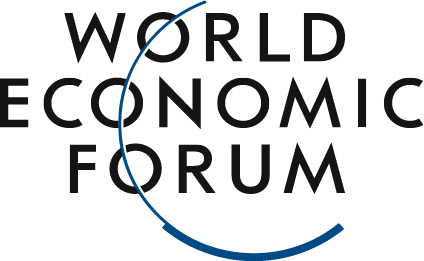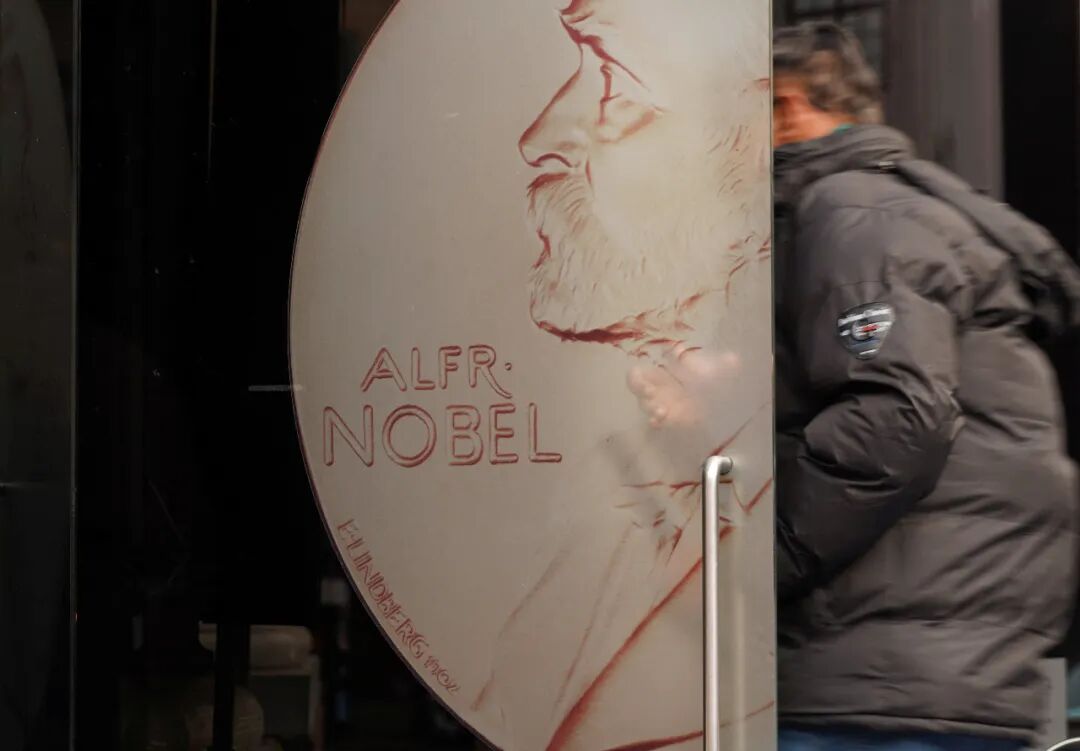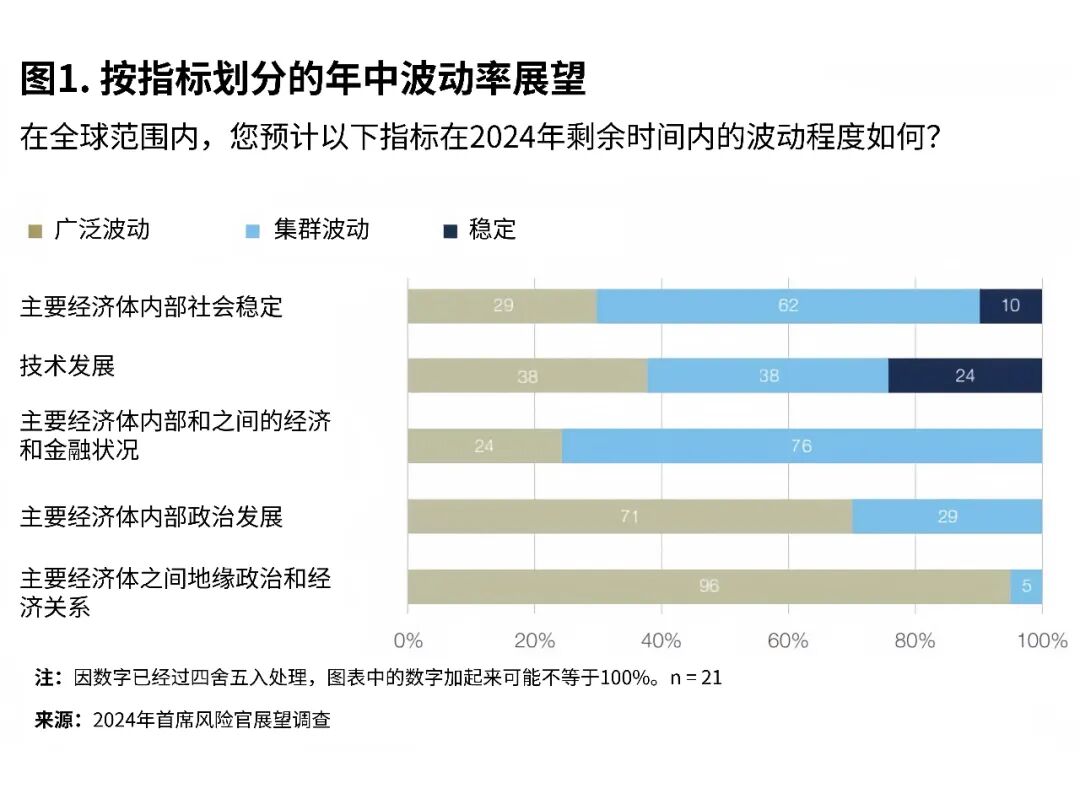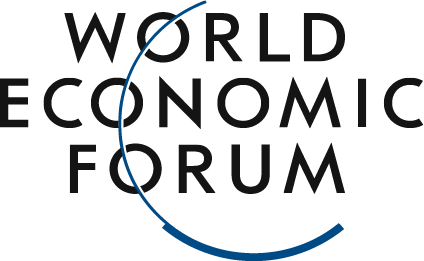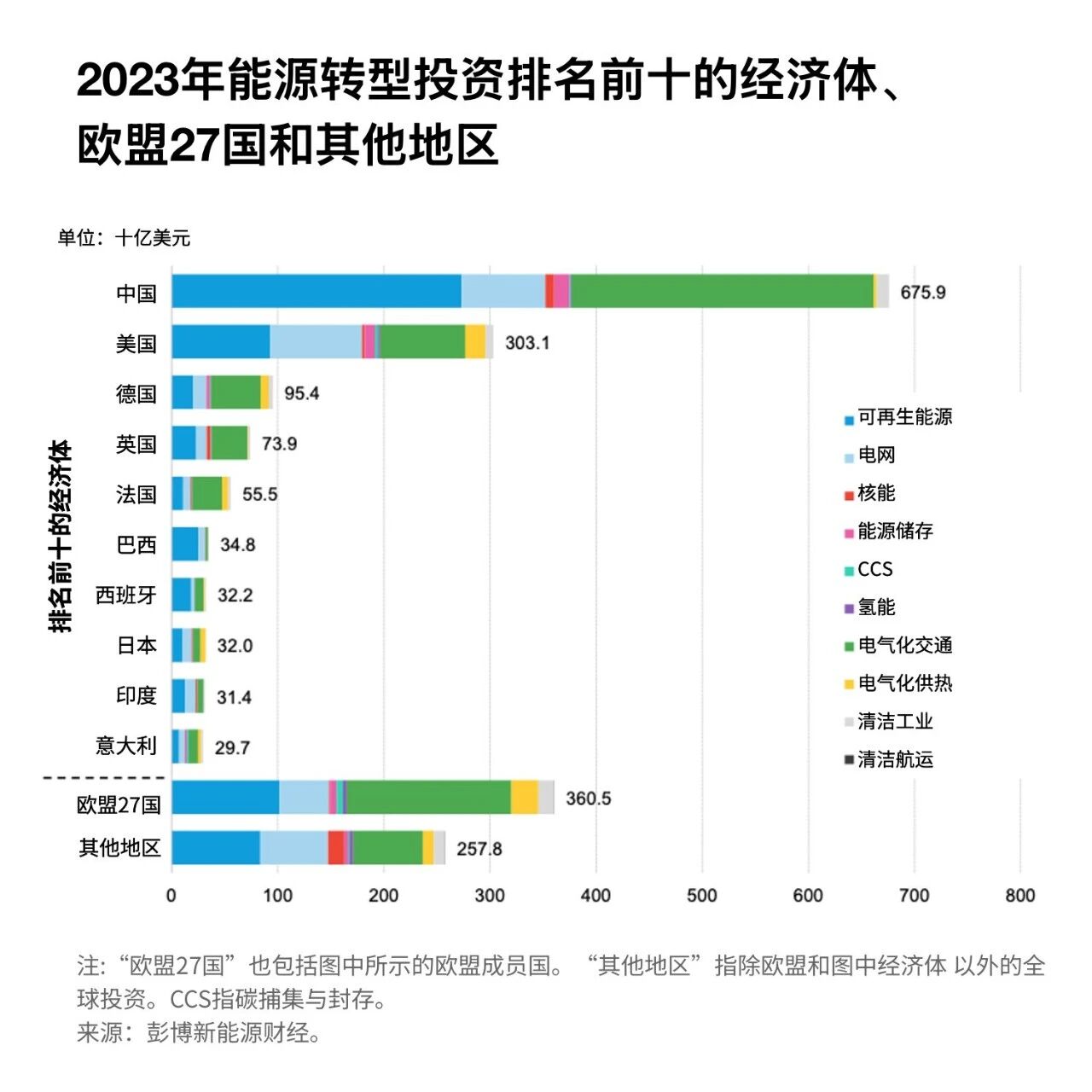Here's what you need to know about the latest Nobel Prize winners.
Image source:Reuters/Tom Little
Kate Whiting
Senior Writer for the Forum Agenda
All the 2024 Nobel Prize winners have been announced, including the Nobel Peace Prize awarded to a group of Japanese atomic bomb survivors.
This year, several Nobel laureates were recognized for their groundbreaking work in developing machine learning tools and making discoveries through the use of artificial intelligence.
From economics to physics, from literature to peace—here’s what you need to know about this year’s Nobel laureates and the groundbreaking work they’ve done to tackle the world’s greatest challenges.
In the latest mid-year briefing released by the World Economic Forum’s Chief Risk Officer community, the deteriorating geopolitical and geoeconomic relationships among major economies emerged as a key concern, with 96% of respondents expecting "widespread volatility" for the remainder of 2024.This sobering prospect is precisely the backdrop to this year's Nobel Peace Prize being awarded to Japanese survivors of the atomic bombings.The risk officer views geopolitical and geoeconomic relationships as the most volatile indicators.
Image source:Chief Risk Officer's Outlook: October 2024
The Japan Confederation of A- and H-Bomb Sufferers' Organizations, Japan's largest group representing atomic bomb survivors, has been instrumental in supporting global efforts to oppose nuclear weapons—through the survivors' firsthand accounts and experiences.Jørgen V. Furenes, Chairman of the Norwegian Nobel Committee, told Reuters: "In a world fraught with conflict… we want to underscore the importance of strengthening the global norm against nuclear weapons and rejecting their use."The six Nobel Prize winners for 2024 have now all been announced. Here’s what you need to know about the latest laureates—and how their work is making a difference in addressing some of the world’s biggest challenges.The 2024 Nobel Prize in EconomicsThe Nobel Prize in Economics was awarded to three scholars whose research on inequality highlighted the link between institutions and prosperity.Last year, British-American economists Simon Johnson and James Robinson, along with Turkish-American economist Daron Acemoglu, published the book *Power and Progress: The Thousand-Year Struggle for Technology and Prosperity*, which explores how the fate of former colonies has been reshaped over time.The Royal Swedish Academy of Sciences stated that societies where the rule of law is weak and institutions exploit their people will not experience growth or improvement.Jacob Svensson, Chair of the Economics Prize Committee, stated: "Closing the vast income gaps between countries is one of the greatest challenges of our time."In September 2024, the World Economic Forum's "Chief Economists Outlook" revealed that the number of economists predicting a global economic slowdown (37%) was four times higher than those expecting growth (9%).A lack of political consensus or will (91%) and insufficient global cooperation (67%) are seen as the primary obstacles to growth.At the Nobel press conference, Acemoglu said: "I believe democratic nations are going through challenging times. In a sense, they must reclaim the upper hand by governing better and more transparently—and deliver on democracy's promise to people at large."Next year will mark the 80th anniversary of the atomic bombings of Nagasaki and Hiroshima, which signaled the end of World War II and left 120,000 people dead, with thousands more injured.According to statistics from Japan's Ministry of Health, Labour and Welfare, there are currently more than 106,000 atomic bomb survivors in Japan, with an average age of 85.6 years.In 1956, local atomic bomb survivors organizations joined forces to establish the Japan Federation of Organizations of A-bomb and H-bomb Victims, later shortened to Nihon Hidankyo.The organization has repeatedly issued resolutions and made public appeals, and annually sends delegations to institutions such as the United Nations and peace conferences to advocate for nuclear disarmament.The Norwegian Nobel Committee stated that the organization "has demonstrated through witness testimony that nuclear weapons must never be used again."This is a stark message delivered at a time of global turmoil and rising mistrust. The Forum’s Global Cooperation Barometer, released in January this year, reveals that "it comes as no surprise that cooperation and competition can coexist—history is rife with examples of parties locked in conflict yet still actively pursuing opportunities for collaboration."The 2024 Nobel Prize in LiteratureKorean author Han Kang has been awarded the literary prize for "powerfully evoking historical trauma through deeply poetic prose while shedding light on the fragility of human life."In 2016, she won the Man Booker International Prize for "The Vegetarian," a feat widely regarded as her major breakthrough on the global stage.Han Kang is the first South Korean writer to win a literary prize, and she is also the 18th woman to receive this prestigious honor. Her career began in 1993 with the publication of her poetry, followed in 1995 by her debut collection of prose—a short story anthology.Upon hearing the news, she told the Swedish Academy: "Tonight, I’ll have tea with my son and quietly celebrate."Cultural leaders have played a vital role in offering worldviews that transcend short-term or linear thinking, and the forum’s Crystal Award also aims to recognize outstanding artists for their lasting contributions to society.The 2024 Nobel Prize in Physiology or MedicineTwo American scientists, Victor Ambros and Gary Ruvkun, have been awarded the Nobel Prize in Medicine for their discovery of a new class of tiny RNA molecules that play a crucial role in gene regulation.The Nobel Committee stated: "Their groundbreaking discovery unveils entirely new principles of gene regulation, which are crucial for multicellular organisms—including humans."According to Reuters, in the late 1980s, the two researchers studied a 1-millimeter-long roundworm in the laboratory of former Nobel laureate Robert Horvitz—but their groundbreaking discovery about how specific tiny RNAs in the worm regulate organ and tissue growth was initially thought to apply only to this particular species.The research findings later published by Lu Fukan's team revealed that all animal life has relied on this mechanism for over 500 million years.Last year’s Nobel laureate in Medicine overcame significant hurdles in applying messenger RNA (mRNA) technology, which BioNTech has now leveraged—partnering with Pfizer—to develop the mRNA COVID-19 vaccine.In 2022, the forum jointly launched the Regional Vaccine Manufacturing Collaboration (RVMC) initiative with the U.S. National Academy of Medicine and the Coalition for Epidemic Preparedness Innovations (CEPI).In January of this year, RMVC unveiled a framework aimed at strengthening vaccine access through regionalized manufacturing ecosystems, while also committing to helping regions build their own vaccine production capabilities.The 2024 Nobel Prize in ChemistryAll three recipients of the Chemistry Prize were awarded for their groundbreaking research in the fields of proteins and artificial intelligence.American scientist David Baker "has successfully accomplished an almost impossible task by creating a completely new type of protein."In 2003, he designed a novel protein using the 20 amino acids known as the building blocks of life. Since then, his research team has been continuously creating new proteins that can be used in drugs, vaccines, nanomaterials, and even miniature sensors.Meanwhile, Google DeepMind CEO Demis Hassabis and U.S. scientist John Jumper have developed an AI model called AlphaFold2 that can predict the intricate structures of proteins—a challenge that has puzzled scientists for 50 years.This model enables them to predict the structures of nearly all 200 million proteins already identified by researchers. Its scientific applications include helping researchers gain a deeper understanding of antibiotic resistance (AMR).The forum's "Global Future Council on Antimicrobial Resistance" is bringing together experts to explore innovative ways to accelerate effective action against antimicrobial resistance—and is calling for the establishment of sustainable financing models to tackle this "silent pandemic."The 2024 Nobel Prize in PhysicsArtificial intelligence pioneers John Hopfield and Geoffrey Hinton have both been awarded the Physics Prize for their pioneering use of tools that laid the foundation for today’s machine learning methods.British-Canadian Hinton is widely hailed as the "Godfather of AI"—he invented a method that allows systems to autonomously identify attributes within data and perform tasks such as recognizing specific elements in images.He has openly spoken about the dangers of artificial intelligence, stating at the Nobel press conference: "We’ve never experienced what it would be like to encounter something smarter than ourselves. Yet AI holds immense potential for positive change in many areas—take healthcare, for instance.""But we also can't help but worry about a range of potential negative consequences—especially the looming threat of these issues spiraling out of control."Hopfield, a professor emeritus at Princeton University and now 91 years old, is the oldest Nobel laureate in Physics ever awarded. He developed a type of associative memory that can store and reconstruct images—as well as other kinds of data patterns.The Forum’s AI Governance Alliance is committed to fostering inclusive, ethical, and sustainable AI, while driving transformative change across industries.In October, the coalition partnered with Accenture to release a white paper titled "Governance in the Age of Generative AI: A 360° Approach to Resilient Policies and Regulation," addressing regulatory gaps, stakeholder-specific governance challenges, and the evolving needs of this rapidly advancing technology.
The above content solely represents the author's personal views.This article is translated from the World Economic Forum's Agenda blog; the Chinese version is for reference purposes only.Feel free to share this on WeChat Moments; please leave a comment below the post if you’d like to republish.
Editor: Wang Can
The World Economic Forum is an independent and neutral platform dedicated to bringing together diverse perspectives to discuss critical global, regional, and industry-specific issues.
Follow us on Weibo, WeChat Video Accounts, Douyin, and Xiaohongshu!
"World Economic Forum"
